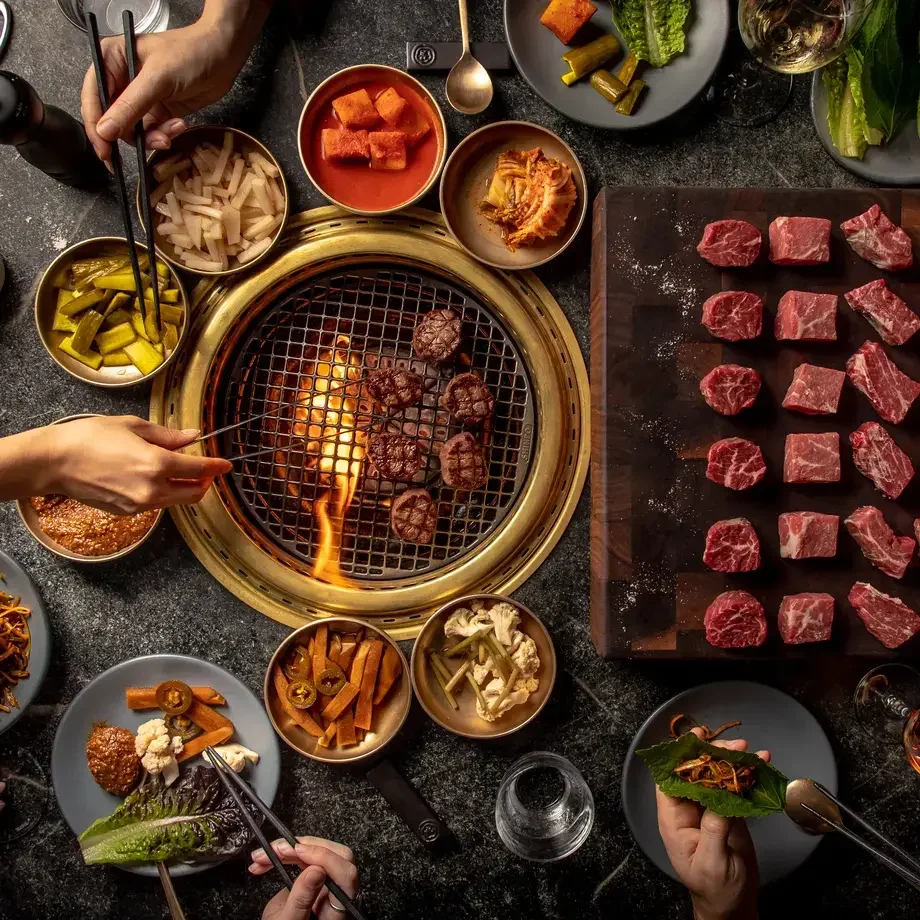The first time I had coffee in Naples - at the counter of one of the grand caffè of the Centro Storico - it burned my tongue. When the barista, donning the immaculate white suit of the craft, saw me grimacing, he asked: “Are you familiar with coffee’s three Cs?” Turns out that, according to local folklore, coffee should have you exclaim: “Comme cazzo coce!” (or “F*ck, it burns!”). Given the near-cult status of Neapolitan coffee, I didn’t say what else I was thinking: not only did my espresso burn my tongue, but it also tasted burnt.
On a recent morning, I went for breakfast to O|NEST in Milan, a newly-opened bistro with a focus on specialty coffee. While sipping my cup of single-origin espresso, I asked resident barista Lorenzo Sordini why coffee in Naples is served so hot. “Have you tried drinking it once it’s cooled down?” he replied. “I’ll give you €10 if you can.” Serving coffee very hot is a bit the same as serving wine very cold: it numbs the mouth, and hides the poor quality of the drink.
Everywhere in the world, coffee has a strong association with Italy: during the 16th century, its emerging middle class was among the first in Europe to get on board with the new concoction once it made its way from the Middle East. And the pleasant jolt of focus and energy provided by caffeine was especially appreciated by intellectuals, who would gather to exchange opinions over coffee in another recent invention: bars. The connection was so strong that when the ideas of the Enlightenment started gaining traction in Italy, and a publication was founded in Milan to popularise them, the founders picked the name ‘Il Caffè’ (which in Italian is both the drink and the place). The Italian bar remained such a powerful symbol that former CEO Howard Schultz credits a 1983 trip to Milan for the creation of Starbucks - and obviously, the espresso is an original Italian invention, of the end of the 19th century.
And yet, the average quality of a cup of coffee in Italy remains quite bad. What is more, the country doesn’t seem so eager to embrace better coffee. The ‘third wave of coffee’, which is taking the world by storm, seems to have all but bypassed Italy. Progress has been slow, and places with a strong focus on good coffee and different methods of extraction - not only espresso - have had a hard time. One such example is Taglio in Milan. A longtime darling of coffee lovers and food writers, it was featured on the uber-famous NYT column “36 hours in” before folding just last month. While the consequences of the lockdown were the final straw, even in its heyday one could easily find oneself completely alone in the dining room while nursing a perfect cup of pour-over coffee.
I asked Lorenzo why specialty coffee hasn’t become more widespread in Italy? “I think it’s a shared responsibility,” he said. “I blame myself and my barista colleagues for our arrogance of the past: we were too quick to judge our clients’ preferences, too obscure and too technical in our descriptions, and too cocky. Back when we started [Lorenzo used to work in London for Curators Coffee and Origin Coffee Roasters] we were convinced we’d turn Italian coffee culture upside down in the space of 2 or 3 years.” I nodded enthusiastically, remembering all the times I was near-bullied by coffee geeks for my love of the humble moka, which is now quietly having a moment, to my delight. So can you make good coffee with a moka, I asked? It was a test, and for a while Lorenzo remained silent, obsessively cleaning a tiny spot on the counter with a kitchen rag. “Three years ago I would have said no way,” he said, reluctantly. “But now - well, sure, you can make a good coffee as long as you keep the moka clean. And you start with warm water to limit exposure to the metal.”
So, baristas really have changed. But have customers? “It’s been really hard to persuade Italians that a coffee which is different from what they’re used to can still be a good coffee - even a better coffee, I dare say,” said Lorenzo.
He was right: every time I buy coffee from a third-wave roastery, my boyfriend makes a funny face when I make one for him. He declares it “sour”, which it’s not: it’s pleasantly acidic. But when, after Sunday lunch, his mom serves him a cup of espresso which has bubbled up inside the moka much longer than advisable, he has no complaints (me? I skip it by pretending I won’t sleep if I have coffee so late in the day).
While taste is definitely a factor, Italians have been resisting third-wave coffee on somewhat more solid grounds: money. In Italy, a cup of espresso costs the same almost everywhere - a very affordable €1, and many people don’t see the value in paying significantly more. “We drink coffee for what it does to us - in order to wake up - just like many people drink beer only to get tipsy,” said Lorenzo.
When Starbucks opened the impossibly fancy Reserve Roastery in Milan in 2018 - after debating the opportunity of launching in Italy for many years - my timeline on social media was neatly divided between people who rushed to visit and those ridiculing the former for their willingness to spend €4.50 on a cappuccino, which is usually around €1.30. But Starbucks had been polarising even before its launch: in the year prior to its debut in Italy, the company sponsored a renovation of Piazza del Duomo, the main square of Milan, which included planting banana and palm trees. Matteo Salvini, leader of the far-right wing party The League (who would later become Ministry of the Interior) tweeted his dismay for the immigrant plants, while Riccardo De Corato, former deputy mayor of Milan and now with the right-wing party Fratelli d’Italia, declared it proof of the “further africanisation” of Milan. Actually, palm trees had been in the piazza up to the early 20th century, following a long tradition of 'exotic' trees in the Renaissance gardens - but by then, the debate had gotten so partisan that nobody cared about this anymore. Already expecting controversy around the launch, it felt like Starbucks had decided to double down on being divisive - probably thinking that politics wasn’t going to be as heated a subject as coffee.
Of course, there has long been excellence in coffee in Italy: the hallmark of a fancy espresso bar anywhere in the world is the beautiful and imposing La Marzocco machine, often considered ‘the Ferrari of coffee makers’, produced by a company founded in Florence in 1927. The late Gianni Frasi, founder of Caffè Jamaica and arguably the most famous roaster in Italy - a somewhat scornful man who forbade his customers to use his coffee to make macchiato because milk “ruins” the taste - had learned the ropes from his uncle Giovanni Erbisti, who was heir to a family tradition started in Verona in 1836.
And young people are taking up the trade: take Lucian Trapanese, founder of D612 Coffee Roasters (the name comes from the real estate registry code for Florence, his hometown). Following a 10-year-old love affair with coffee, which took him to London for a year in 2012 to learn more, he opened his own roastery in 2017 as a side hustle, while still working as a barista to make ends meet. It’s a tiny operation, where beans are roasted manually on an open flame, 6kgs for each round, a little over 100kgs every day. I ask him what the future holds for Italian coffee: “Italy is more complicated than other European markets, and we all need to ditch the attitude toward our customers if we want to turn this into a sustainable industry. It’s going to take at least a generation to change the coffee culture here, but I’m already seeing a new spirit.”
A short, non-comprehensive list of specialty coffee bars around Italy:
Milano - Orsonero Coffee
Bergamo - Bugan Coffee Lab
Brescia - Checchi brunch & specialty coffee
Bra - Bottega delle Delizie
Treviso - Taste Coffee & more
Firenze - Melaleuca
Roma - Faro caffè specialty
Pompei (NA) - Campana Caffè
Palermo - Bar Vabres








